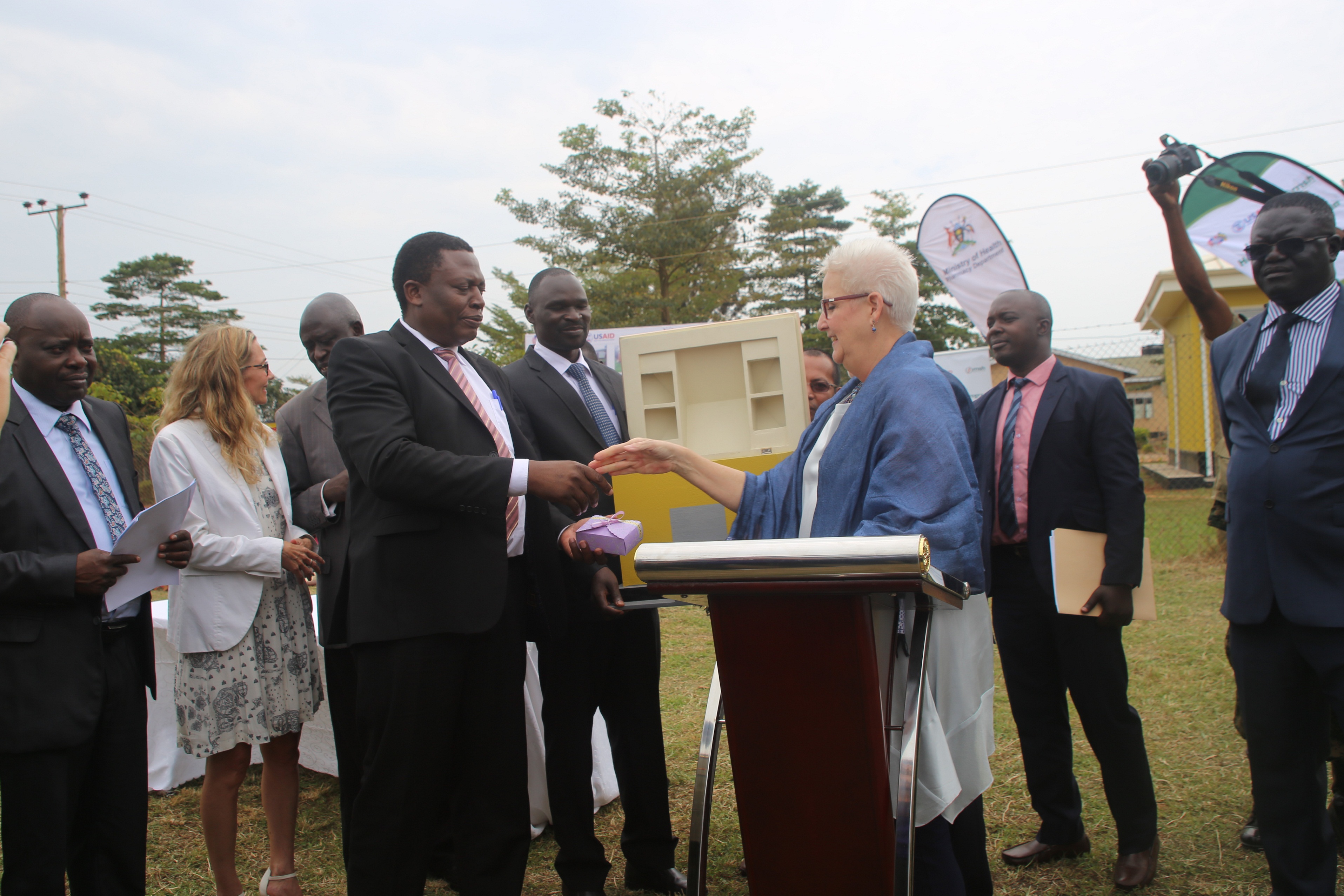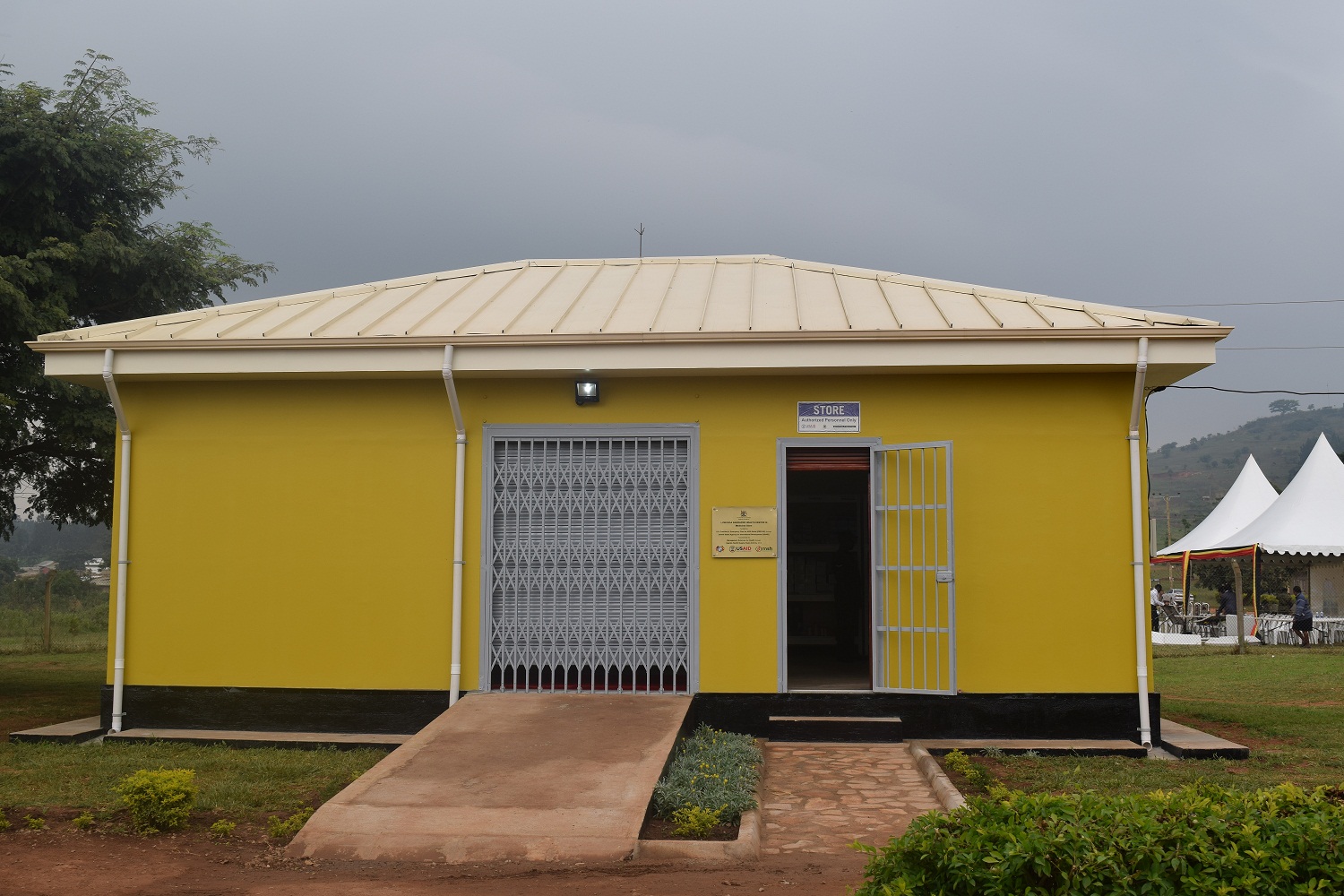KAMPALA, UGANDA
The United States government officially handed over the first 14 of 26 newly constructed pre-fabricated medicine stores to the Ministry of Health to help scale up the response to the HIV/AIDS epidemic.
The health facilities that will benefit from this program are; Kabwohe HC IV, Bwizibwera HC IV, Wakiso HC IV, Kangulumila HC IV, Namayumba HC IV, Ruhoko HC IV, Luwunga Barracks HC III, Kitgum Hospital, Ogur HC III, kakumulo HC IV, Kasambya HC III, Serere HC IV, Kyegwegwa HC IV Kasangati HC IV, Kiganda HC IV, Koboko HC IV, Kyarusozi HC IV, Lwengo HC IV, Kassanda HC IV, Amach HC IV, Otwal HC III, Kazo HC IV, Gulu Military Hospital, Nagongera HC IV, Bullisa Hospital and Bundibugyo Hospital The U.S.
Ambassador to Uganda, H.E. Deborah Malac, handed over the facilities to the Minister of Health represented by Dr. Charles Olaro the Director Clinical Services at a ceremony at Luwunga Health Centre III, Kakiri Barracks, Wakiso district.
The Director Clinical Services, Dr Charles Olaro said “Poor storage of commodities is challenging to implement best practices in medicine management and raises the risk of poor accountability and traceability.” He added that “the newly constructed storage units will foster an environment where patients and their communities have improved access to essential and lifesaving health commodities.”
In her remarks, Ambassador Malac said, “This assistance reflects U.S. government commitment to support the modernization of the health commodities supply chain in Uganda through various investments within the supply chain system and promotes local ownership.”

The facilities will increase storage space for health commodities including antiretroviral medicines and support the roll out of the test and treat strategy for achieving HIV/AIDs control by ensuring that Ugandans living with HIV can receive their medicines and be dispensed adequate quantities.

With funding by the U.S. President’s Emergency Plan for AIDS Relief (PEPFAR), the United States Agency for International Development constructed these facilities through its Uganda Health Supply Chain Program implemented by Management Sciences for Health. PEPFAR provided approximately US $2,387,672 for the expansion of storage facilities at 26 health centres in 22 districts across the country.
This is the latest in a series of U.S. government efforts, in partnership with the Ugandan government, to strengthen the health commodities supply chain and improve the health status of Ugandans.
This partnership has delivered vital policies, logistics tools and technologies, supported capacity building around essential medicines and health supplies, and procured and made available antiretroviral medicines for Ugandans living with HIV. The Uganda Health Supply Chain program helps the Ministry of Health improve the health of Ugandans by increasing the availability, affordability, accessibility and appropriate use of good quality essential medicines and health supplies.
END







